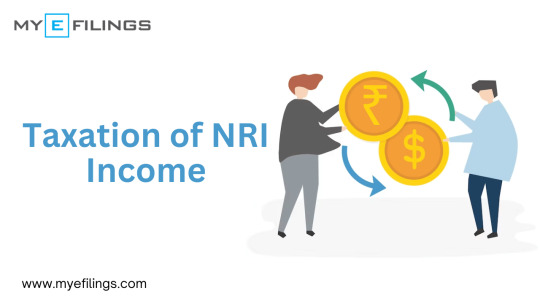#Income Tax Filing For NRI
Text
NRI Investment In India | NRI Services Canada

NRIs have a vital role in the Indian Economy. There are different tax benefits for NRIs in India. Because of a lack of time and information, NRIs need honest and specialized consultants like NRI Services Canada. We provide advisory services like Investment in India, NRI Investment In India, tax advice, planning, filing of Income Tax Returns, and Wealth Management. For more information, contact us at +1 705-980-0009 or +91 1-515-4322.
#NRI Investment In India Real Estate#NRI Property Investment In India#NRI India Tax Filing#Tax Filing For NRI#Income Tax Filing For NRI#Property Tax Management NRI#NRI TDS Refund#NRI Capital Gain Tax#Investment In India#NRI Investment In India#Best Investment In India#Investment Options In India
1 note
·
View note
Text
Food License Registration in India with The Tax Planet
Ensure your food business complies with legal standards by obtaining a food license registration in India with The Tax Planet. Our expert team simplifies the process, guiding you through every step to secure your FSSAI license swiftly and efficiently. Whether you are starting a restaurant, food truck, catering service, or packaged food business, we provide comprehensive support, from document preparation to application submission. Trust The Tax Planet for hassle-free food license registration, ensuring your business meets all regulatory requirements and operates smoothly. Protect your brand and build consumer trust with our reliable licensing services.
#roc filing services in india#gst services in india#company formation in india#income tax services in india#income tax consultants in india#income tax solutions in india#gst registration in india#roc filing in india#roc compliance in india#income tax returns for nri
0 notes
Text
#taxation#usa#finance#financial planning#indian nri#accounting#income tax return#income tax filing#financial freedom
0 notes
Text
Navigating Tax Season: A Guide For NRIs in Income Tax Return Filing

Sometimes, it becomes a difficult journey for NRIs i.e. Non-Resident Indians to file the income tax return in India. But you can make this journey smooth with the help of right guidance & preparation. Here, in this comprehensive guide we will provide some essential tips for NRIs so that they can navigate the IR Filing process effectively:
Some ITR Filing Tips for NRIs
Understand Your Residential Status: NRIs must have to determine their residential status for tax purposes. NRIs have to pay tax in India on the basis of their residential status that depends on the number of days spent by them in India during the financial year.
Declare Global Income: If you are an NRI, then you have to declare your global income in India that includes the income that has been earned in abroad. It is essential to report all the sources of income accurately including income from salaries, rental properties, capital gains, interest, dividends, etc. to avoid the penalties.
Familiarize Yourself with DTAA: NRIs can utilize the benefit of Double Taxation Avoidance Agreements (DTAA) that has been signed between India & other countries. Under this, you as an NRI can claim relief from double taxation by either claiming tax credit or opting for exemption on certain types of income.
Explore Tax Benefits: Under the Indian Income Tax Act, NRIs can claim deductions and exemptions to reduce their tax liability. NRIs can claim exemptions on certain incomes like long-term capital gains on specified investments.
File Timely Returns: Make sure that you file the Income Tax Returns on time to avoid penalties and interest. Usually, the due date for filing returns for NRIs is July 31st of the assessment year, but you should stay updated with any changes in deadlines.
Conclusion
NRIs can navigate the complexities of filing Income Tax Return easily and confidently by following the above mentioned tips. Always remember, stay informed and proactive which is a key to navigate the world of taxation smoothly.
#income tax#income tax return#income tax return filing#income tax return filing online#itr filing#ITR Filing by NRIs#ITR Filing tips for NRIs
0 notes
Text

The taxation of Non-Resident Indian (NRI) income depends on various factors, including the type of income earned and the individual's residential status for tax purposes. Here are some key points to consider:
Residential Status: The residential status of an individual determines the scope of taxation in India. The Income Tax Act categorizes individuals into three groups: Resident and Ordinarily Resident (ROR), Resident but Not Ordinarily Resident (RNOR), and Non-Resident (NR). NRIs are taxed only on income earned or received in India or income deemed to accrue or arise in India.
Taxable Income: The income earned by NRIs can be broadly classified into two categories:
a. Income earned in India: This includes income from salaries, house property, capital gains, business/profession, and other sources like fixed deposits, savings accounts, etc., held in India.
b. Income earned abroad: Income earned outside India is generally not taxable in India for NRIs. However, if an NRI receives income from a business or profession set up in India or from a source in India, it may be subject to taxation.
Tax Rates: The tax rates applicable to NRIs are the same as those for residents. The tax slabs and rates are determined by the Indian government and may change from year to year.
Double Taxation Avoidance Agreements (DTAA): India has signed DTAA with several countries to avoid the double taxation of income. Under DTAA, if an NRI's income is taxable in both India and their country of residence, they can claim relief by either claiming an exemption or tax credit.
Tax Deductions and Exemptions: NRIs are eligible for certain deductions and exemptions on specific types of income, similar to residents. For example, deductions can be claimed on investments made under Section 80C, such as life insurance premiums, Provident Fund contributions, etc.
TDS (Tax Deducted at Source): TDS is applicable to NRIs in certain cases, such as interest income from fixed deposits, rent income, etc. The rates of TDS may vary depending on the type of income and specific provisions of the Income Tax Act.
Filing Income Tax Return: NRIs are required to file an income tax return in India if their taxable income exceeds the specified threshold or if they have certain types of income, even if the income is below the threshold. The due date for filing the return may differ for NRIs compared to residents.
Read more: https://myefilings.com/taxation-of-nri-income-exploring-different-categories-and-tax-rates/
#myefilings#business#india#taxes#income tax#company#income taxes#nri services#tax filing#tax returns
0 notes
Photo


RBG Consultants can provide support in matters related to inheritance, wills and trusts, and estate planning for NRIs. They can also assist with the acquisition and sale of property in India, and help with the transfer of funds to overseas accounts.
Address: Office No: 204, SECOND FLOOR, PLOT NO. 2, AGGARWAL TOWER, SECTOR 5, DWARKA, NEW DELHI-110075
Visit now:https://www.rbgconsultant.com/
Contact us: 9810166145
0 notes
Text
How Can NRIs Invest in India With NRI Services?
Non-resident Indians (NRIs) hold a unique position in the Indian economy. They are not only a valuable source of foreign exchange, but also a potential force driving the country's growth story. Navigating investments in India can be a bit confusing for NRIs. Understanding where and how to invest amidst regulations, tax implications, and diverse options can feel tricky, which is why, NRIs willing to invest in India can rely on NRI services, which make investing easier as per the rules set by RBI and SEBI under the Foreign Exchange Management Act (FEMA).
Where Can NRIs Invest in India?
NRI services encompass a range of financial solutions tailored specifically for non-resident Indians seeking to invest, manage their wealth, and connect with their homeland. It is vital to understand where NRIs can invest in India.

Equities
NRIs can invest directly in Indian stocks through the Portfolio Investment Scheme (PIS) by the Reserve Bank of India (RBI).
Mutual Funds
Investing in Mutual Funds offers various choices like Equity, Balanced, Bond, and Liquid Funds. Unlike direct equities, NRIs investing in Mutual Funds do not require PIS permissions from RBI. However, some restrictions may apply to NRIs from the US and Canada due to reporting regulations.
Government Securities
NRIs can invest in government securities on NRE and NRO basis, each with different tax implications based on the type of investment.
Fixed Deposits
Investment opportunities in fixed deposits are available for NRIs through Banks or Non-Banking Financial Companies (NBFCs), each with its tax implications based on the NRE (Non-Resident External) or NRO (Non-Resident Ordinary) basis. NRIs can also invest in Foreign Currency Non-Resident (FCNR) fixed deposits.
Real Estate
NRIs can invest in real estate except for certain property types like agricultural land, farmland, or plantations.
National Pension Scheme (NPS)
NPS, a retirement savings plan, offers tax benefits. Contributions can be made from NRE or NRO accounts, but the pension must be received in India.
Portfolio Investment Scheme (PIS)
PIS allows NRIs to trade in shares and debentures through a designated bank account. It helps regulate NRI holdings in Indian companies, preventing breaches of set limits.
How Experts Simplify NRI Services?
Experts like Samarth Capital simplify the investment process by providing guidance, ensuring NRIs make informed decisions aligned with their goals. Here’s how they make investing easy for NRIs.
Helping open NRE / NRO savings and PIS bank accounts.
Setting up brokerage and demat accounts for trade.
Monitoring your portfolio regularly.
Engaging tax consultants for compliance.
Understanding Taxes and Rules
For NRIs, it's crucial to understand tax implications in India and their country of residence. Compliance with the Double Tax Avoidance Agreement (DTAA) and filing taxes in India if taxable income exceeds the exemption limit is important.
Wrapping Up
Investing in India as an NRI offers diverse opportunities. With guidance and a grasp of regulations, NRIs can navigate this landscape effectively and make the most of available avenues. Samarth Capital, not only facilitates NRI investments but also helps foreigners invest in India with FPI services. So, whether you're an NRI or a foreigner, investment in India isn't a far-fetched dream anymore.
2 notes
·
View notes
Text
How to apply for indian pan card for NRI
how NRIs can apply for an Indian PAN card from abroad with our comprehensive guide.
What is a PAN Card?
A Permanent Account Number (PAN) is a unique, ten-digit alphanumeric identifier issued by the Indian Income Tax Department. It is essential for various financial transactions and tax-related activities within India. The PAN card serves as a critical document for both residents and non-resident Indians (NRIs) for conducting various financial operations.
Features of the PAN Card
Unique Identification: Each PAN card is unique to the individual or entity, ensuring that there are no duplicates.
Lifelong Validity: Once issued, a PAN remains valid for the lifetime of the cardholder, regardless of any changes in address or employment status.
Comprehensive Record-Keeping: It helps the government track all financial transactions, thus preventing tax evasion.
Financial Transactions: PAN is mandatory for opening a bank account, filing income tax returns, buying and selling property, and making investments.
Proof of Identity: It acts as a valid identity proof for various purposes within India.
Importance of a PAN Card
Tax Filing: Mandatory for filing income tax returns in India.
Financial Transactions: Essential for transactions above a certain limit, such as deposits or withdrawals exceeding INR 50,000.
Investment: Required for investing in stocks, mutual funds, and other financial instruments.
Loan Applications: Necessary for applying for loans.
Property Transactions: Needed for buying, selling, or renting property.
Foreign Remittances: Useful for managing foreign remittances and ensuring tax compliance.
How to Apply for Indian PAN Card from the USA
If you want to apply for indian pan card so you can contact us +1 (416) 996–1341 or [email protected] to apply for indian pan card.
1- Visit this site indianpancardusa.com
2- And Go to application form of apply for pan card
3- fill the details
4- Upload documents
5- submit the application form.
Conclusion
How to apply for indian PAN card is a straightforward process if you follow the steps outlined above. Ensure all details are accurate, and documents are correctly submitted to avoid delays. With a PAN card, you can efficiently manage your financial affairs in India, even while residing abroad. A PAN card is an essential document for anyone involved in financial activities in India, including NRIs residing in the USA. The application process, whether online or via physical submission, is straightforward and manageable. Ensure that all details are accurate and documents are correctly submitted to avoid delays. With a PAN card, you can seamlessly manage your financial affairs in India from abroad.
Contact us
Phone:- +1 (416) 996–1341
Email Us:- [email protected]
0 notes
Text
Maximize Your Tax Benefits: NRI ITR Filing Service in India Guide
Are you a Non-Resident Indian (NRI) looking to maximize your tax benefits in India? Look no further! Our NRI ITR Filing Service in India Guide is here to help you navigate the complex world of tax filing and ensure you make the most of the available deductions and exemptions.
Understanding NRI ITR filing
Filing your Income Tax Return (ITR) as an NRI can be quite a daunting task due to the specific rules and regulations that apply to non-residents. Understanding the nuances of NRI tax filing is essential to ensure compliance with Indian tax laws and to optimize your tax benefits. Our guide will break down the complexities of NRI tax filing, making it easier for you to grasp the requirements and procedures involved.
As an NRI, it's crucial to be aware of your tax obligations in India, even if you earn income abroad. Filing your tax returns correctly and on time not only helps you stay compliant with the law but also allows you to take advantage of various tax benefits that can reduce your overall tax liability. With the right knowledge and guidance, you can make the most of the opportunities available to NRIs for saving on taxes.
Navigating the tax landscape as an NRI requires a clear understanding of the different categories of income, exemptions, and deductions that apply to non-residents. By familiarizing yourself with the basics of NRI tax filing, you can ensure that you leverage all the available benefits and avoid potential pitfalls that may arise during the filing process.
Importance of filing your taxes as an NRI
Filing your taxes as an NRI is not just a legal requirement but also a strategic financial decision that can have a significant impact on your overall tax liability. By fulfilling your tax obligations in India, you can avoid penalties and legal issues while also benefiting from tax-saving opportunities that are specifically designed for NRIs.
Proper tax planning and timely filing of your tax returns can help you optimize your finances and ensure that you are making the most of the available deductions and exemptions. Whether you earn income in India or abroad, understanding the importance of filing your taxes as an NRI is key to managing your tax liabilities effectively and maximizing your savings.
Engaging in proactive tax planning and staying informed about the latest developments in NRI tax laws can empower you to make informed decisions that align with your financial goals. By prioritizing tax compliance and leveraging the available tax benefits, you can secure your financial future and make the most of your NRI status.
NRI tax benefits
One of the key advantages of being an NRI is the access to various tax benefits that can help you reduce your taxable income and lower your overall tax liability. Understanding and leveraging these tax benefits is essential for maximizing your savings and optimizing your financial planning as an NRI.
Some of the common tax benefits available to NRIs include exemptions on certain types of income, deductions for specific investments and expenses, and tax credits for taxes paid in foreign countries. By taking advantage of these benefits and structuring your finances accordingly, you can minimize the taxes you owe and retain more of your hard-earned money.
It's important to note that the tax benefits available to NRIs may vary based on your residential status, nature of income, and other factors. By working with tax experts who specialize in NRI taxation, you can identify the tax-saving opportunities that are most relevant to your situation and implement strategies to maximize your benefits.
NRI tax filing requirements
As an NRI, you are required to file your tax returns in India if you meet certain criteria, such as earning income in India or having taxable income that exceeds the basic exemption limit. Understanding the specific tax filing requirements for NRIs is crucial to ensuring compliance with Indian tax laws and avoiding any penalties or legal issues.
NRI tax filing requirements may differ based on the source of income, residential status, and double taxation avoidance agreements between India and other countries. By familiarizing yourself with these requirements and seeking professional guidance when needed, you can navigate the tax filing process smoothly and fulfill your obligations in a timely manner.
In addition to filing your tax returns, NRIs may also need to report certain financial transactions and foreign assets to the Indian tax authorities. Staying informed about the latest regulatory changes and disclosure requirements can help you stay compliant and avoid any potential issues related to non-disclosure of income or assets.
Steps to file your NRI ITR in India
Filing your Income Tax Return (ITR) as an NRI involves several steps that need to be followed diligently to ensure accurate and timely submission. Understanding the process of NRI tax filing and the documentation required can help you streamline the filing process and avoid any errors or discrepancies that may arise during assessment.
The first step in filing your NRI ITR is to determine your residential status for the relevant assessment year based on the number of days you have spent in India. Once your residential status is established, you can proceed to gather the necessary documents, such as PAN card, Form 16, and details of foreign income, to support your tax return.
Next, you will need to choose the appropriate ITR form based on the nature of your income and the exemptions or deductions you wish to claim. Filling out the form accurately and disclosing all relevant details is critical to ensuring that your tax return is processed smoothly and without any delays. Finally, you can e-file your NRI ITR through the official income tax portal or seek assistance from a professional tax filing service for expert guidance.
Documents required for NRI ITR filing
When filing your Income Tax Return (ITR) as an NRI, it's important to gather the necessary documents to support your tax return and ensure compliance with Indian tax laws. Having the right documentation in place can help you accurately report your income, claim deductions, and avoid any discrepancies that may trigger tax notices or audits.
Some of the key documents required for NRI ITR filing include your PAN card, Form 16 (if applicable), bank statements, details of foreign income, TDS certificates, and investment proofs for claiming deductions. Additionally, you may need to provide documents related to any foreign assets or investments held during the assessment year.
Keeping your documents organized and up to date can simplify the tax filing process and enable you to file your NRI ITR accurately and efficiently. By maintaining proper records and ensuring that all required documents are in order, you can minimize the risk of errors or omissions that could lead to tax implications in the future.
Hiring a professional NRI tax filing service
Navigating the complexities of NRI tax filing can be challenging, especially if you are unfamiliar with Indian tax laws and procedures. Hiring a professional NRI tax filing service can provide you with the expertise and support you need to ensure accurate and compliant tax filing while maximizing your tax benefits as an NRI.
A reputable NRI tax filing service will have in-depth knowledge of the tax laws that apply to non-residents and experience working with NRIs from various countries and income backgrounds. By entrusting your tax filing to experts, you can save time and effort, avoid potential errors, and leverage their insights to optimize your tax planning strategies.
Professional tax filing services for NRIs can offer a range of services, including assessing your tax liability, preparing and filing your tax returns, responding to tax notices, and providing guidance on tax-saving opportunities. By partnering with a trusted tax advisor, you can gain peace of mind knowing that your tax affairs are in good hands and that you are maximizing your tax benefits as an NRI.
Conclusion: Maximize your tax benefits as an NRI
Filing your Income Tax Return (ITR) as an NRI requires careful planning, attention to detail, and knowledge of the tax laws that apply to non-residents. By understanding the nuances of NRI tax filing, leveraging the available tax benefits, and seeking professional assistance when needed, you can optimize your tax benefits and minimize your tax liabilities as an NRI.
Don't let the complexities of NRI tax filing overwhelm you. With the right guidance and support, you can navigate the tax landscape with confidence and ensure that you are making the most of your NRI status. Maximize your tax benefits, stay compliant with the law, and secure your financial future as a non-resident Indian by following the tips and insights shared in our NRI ITR Filing Service in India Guide.
Other Link
Top Income Tax Consultants
Private Limited Company Registration
One Person Company Registration Service
Public Limited Company Registration Service
GST Return Filing Services
Trademark Registration service
0 notes
Text
What should NRIs watch out for when Investing in India this Year?
The investment landscape in India has expanded significantly in recent years, making it a great time to be a Non-Resident Indian (NRI) interested in doing business there. Finding the appropriate NRI investment in India may secure your future financial well-being regardless of where you live or what you do. The Indian market is increasing, and you can benefit from participating. The steps involved in investing may seem daunting, but these guidelines make the process much more manageable.

Know the difference
One of the foremost things to remember when deciding for Investment in India where to put your money is the distinction between buying a product and investing in a process. If you put money into real estate, you're buying something (say, a house). In the long run, real estate is one of the most reliable ways to increase wealth.
Make it a habit to keep tabs on where your money is going.
Money alone is not enough for investment. Also, it would help if you had complete transparency on the final destination of your cash. A large group of investors is made up of NRIs. Investment Options in India in a foreign currency may increase broker interest in advising you to invest in India's "fancy" investment possibilities.
Sometimes, brokers or plan administrators provide investment options that are out of the ordinary. But before you put your money into any of these goods, you should investigate the company and see where the money comes from.
Learn the function of the intermediate
The broker or dealer is also a vital part of any investment. You should know the intermediaries well and out if you're going to look at the many investment opportunities in India. The purchase of stocks, for instance, would typically be handled by a broker. The broker functions as a mediator in this transaction. Brokerage fees include service fees, commissions, and more. Brokers might charge varying fees. So, it is advisable to compare several platforms and their rates before settling on the best possible bargain for the Best Investment in India.
Verify where your payment will ultimately go
Before putting money into stocks, it's essential to research the firm and its guiding values. It facilitates informed financial choices. For instance, you may be interested in learning whether or not the firm you have invested in prioritizes things like ethical work practices, fair salaries, sustainability, etc., and financial success. Try to trace your money as it travels through the system.
Conclusion
As long as your investing strategy aligns with your requirements and objectives, there is no right or wrong option. It would help if you also had total NRI savings to account for Tax Filing For NRI, making it easier to manage all your investments in one place.
Location: Tax Filing For NRI, Mainroyal Street Mississauga ON L5L 1C9 CANADA.
#Investment In India#NRI Investment In India#Best Investment In India#Investment Options In India#NRI Investment In India Real Estate#NRI Property Investment In India#NRI India Tax Filing#Tax Filing For NRI#Income Tax Filing For NRI#Property Tax Management NRI#NRI TDS Refund#NRI Capital Gain Tax#NRI Income Tax Return
0 notes
Text
Maximizing Your Income with Taxes Using The Tax Planet
Tax season can be a stressful time for many, but with the right strategies and guidance, you can turn it into an opportunity to maximize your income. At The Tax Planet, we specialize in helping individuals and businesses navigate the complexities of the tax system to ensure they keep more of what they earn. Here’s how The Tax Planet can assist you in maximizing your income through effective tax planning:
#gst registration in india#gst services in india#income tax consultants in india#roc filing services in india#income tax services in india#roc compliance in india#company formation in india#income tax returns for nri#income tax solutions in india#roc filing in india
0 notes
Text

As Non-Resident Indians (NRIs) residing in Delhi, understanding the intricacies of income tax filing is crucial. It involves knowing the tax laws applicable to NRIs and how to comply with them. NRI Taxation Bharat provides NRI Income Tax Return Service in Delhi, India with strategic tax planning and investment advice to optimize the financial affairs of NRIs.
#taxation#indian nri#finance#accounting#nri#taxes#inco#income tax#income tax return#income tax filing
0 notes
Photo

(via Tips to NRIs for ITR Filing - Exemptions | Deductions)
#Income Tax#Income Tax Return#Income Tax Return Filing#Income Tax Return Filing Online#ITR Filing#ITR Filing for NRIs#Filing ITR by NRIs#ITR Filing Tips for NRIs
0 notes
Text
Law consultant for NRI in India | Tax law consultants for NRI in India | Whizlegal
Navigating the legal landscape can be daunting for anyone, but for Non-Resident Indians (NRIs), the complexities multiply. The intersection of Indian and international laws, combined with evolving regulations, makes it imperative for NRIs to seek specialized legal advice. This is where Whizlegal steps in, offering unparalleled expertise as a law consultant for NRI in India. Whether it’s handling property disputes, inheritance issues, or tax obligations, Whizlegal stands as a beacon of trust and efficiency.

Why NRIs Need Specialized Legal Consultants
Complex Legal Framework
India’s legal framework can be intricate, especially when dealing with property laws, inheritance laws, and tax regulations that affect NRIs. Differences in legal practices and the added layer of international law can lead to confusion and potential legal missteps.
Property Management
Owning property in India while living abroad presents unique challenges. From property disputes and tenant issues to ensuring compliance with local property laws, having a reliable legal consultant ensures your interests are safeguarded.
Taxation Matters
NRIs face distinct tax obligations in India, including income tax, wealth tax, and property tax. Understanding the nuances of Double Taxation Avoidance Agreements (DTAA) and staying compliant with both Indian and foreign tax laws necessitates expert advice.
Whizlegal: Your Trusted Law Consultant for NRI in India
Comprehensive Legal Services
Whizlegal offers a full spectrum of Law consultant for NRI in India. Our team of seasoned lawyers is adept at handling:
Property Disputes: We provide robust legal support for resolving disputes related to property ownership, tenant issues, and illegal possession.
Inheritance Laws: Our experts guide you through the complexities of succession and inheritance laws, ensuring a smooth transfer of assets.
Family Laws: Handling matters of marriage, divorce, and child custody with sensitivity and legal precision.
Commercial Laws: Assisting NRIs with business formation, compliance, and contractual disputes in India.
Expertise in Tax Laws
Navigating tax laws is crucial for NRIs to avoid hefty penalties and ensure compliance. Whizlegal’s tax law consultants specialize in:
Tax Planning: Strategic advice to minimize tax liabilities while staying compliant with Indian laws.
Filing Tax Returns: Assistance with filing accurate and timely tax returns in India.
DTAA Guidance: Expertise in leveraging Double Taxation Avoidance Agreements to prevent being taxed twice on the same income.
Wealth Management: Advising on tax-efficient investment strategies and asset management.
Why Choose Whizlegal?
Experienced Professionals
Our team comprises highly qualified and experienced lawyers who understand the unique challenges faced by NRIs. We stay abreast of the latest legal developments to provide informed and effective advice.
Personalized Service
We offer personalized legal solutions tailored to your specific needs. Our consultants take the time to understand your situation and craft strategies that align with your objectives.
Transparent Process
At Whizlegal, transparency is key. We ensure you are kept informed at every step of the legal process, with clear communication and detailed explanations of our actions and recommendations.
Client-Centric Approach
Our clients are our top priority. We are committed to providing responsive and reliable legal services, ensuring your concerns are addressed promptly and effectively.
Conclusion
As an NRI, navigating the legal and Law consultant for NRI in India requires specialized knowledge and expertise. Whizlegal is your trusted partner, offering comprehensive legal and tax consulting services to safeguard your interests and ensure compliance. Whether you need assistance with property disputes, inheritance issues, or tax planning, our team of experienced professionals is here to help.
For expert legal consultation, contact Whizlegal today and let us help you navigate the complexities of Indian law with confidence.
#whizlegal#best legal firm for nri in india#tax law consultants for nri in india#law consultant for nri in india
0 notes
Text
How to apply Pan Card Online
A Permanent Account Number (PAN) card is a critical financial document issued by the Income Tax Department of India. This ten-digit alphanumeric identifier is essential for anyone engaged in financial transactions in India, ranging from individuals to businesses. Here, we delve into how to apply pan card online.
What is a PAN Card?
A PAN card is an identification document assigned to Indian taxpayers. The unique number on the card is linked to all financial transactions made by the individual or entity, allowing the government to monitor and prevent tax evasion. It is issued under the supervision of the Central Board of Direct Taxes (CBDT) and remains valid for a lifetime.
Importance of a PAN Card
The significance of a PAN card extends beyond mere identification. Here are some key reasons why having a PAN card is crucial:
Tax Filing: A PAN card is mandatory for filing income tax returns. It ensures that every taxpayer is uniquely identified, and their tax payments are accurately recorded.
Financial Transactions: PAN is required for various high-value transactions such as buying or selling property, purchasing vehicles, and investing in mutual funds or stocks. It helps in tracking these transactions and preventing illegal financial activities.
Bank Accounts: Opening a new bank account, whether savings or current, requires a PAN card. It also applies to applying for credit or debit cards.
Loan Applications: Financial institutions demand PAN details when processing loan applications, including personal, home, or business loans.
Foreign Transactions: For NRIs and foreign nationals involved in business or property dealings in India, a PAN card is essential for regulatory compliance.
Amazing Features of a PAN Card
The PAN card comes with several noteworthy features that make it a versatile and indispensable document:
Unique Identifier: Each PAN is unique to an individual or entity, ensuring no two PANs are the same. This uniqueness helps in the precise tracking of financial activities.
Lifetime Validity: Once issued, a PAN card does not expire. It remains valid for the holder’s lifetime, irrespective of changes in personal details such as address.
Digital Integration: The PAN database is integrated with other government services, enhancing transparency and simplifying processes such as linking with Aadhaar for improved verification.
Preventing Tax Evasion: By linking all major financial transactions to a single identifier, the PAN system helps prevent tax evasion and money laundering, ensuring more robust financial regulation.
Versatility: It is accepted as a valid proof of identity across the country for various purposes, including KYC (Know Your Customer) requirements.
Applications of a PAN Card
If you want to apply pan card online so you can contact us +1 (416) 996–1341 or [email protected] for apply your pan card online.
The applications of a PAN card are vast, encompassing a wide range of financial and legal activities:
Taxation: Filing income tax returns, claiming tax refunds, and receiving taxable salary or professional fees require quoting your PAN.
Banking: Essential for opening bank accounts, applying for loans, and making deposits exceeding a certain threshold.
Investments: Required for investing in securities, mutual funds, and debentures. It is also needed for transactions involving the transfer of securities.
Property Transactions: Necessary for buying or selling immovable property valued above a specified amount.
Business: Companies need a PAN for registering their business, paying taxes, and participating in government tenders.
Telecommunications: Required for purchasing a new mobile phone connection.
Insurance: Mandatory for purchasing policies above a certain value and for claims.
Conclusion
How to apply for PAN card online from Canada is a straightforward process if you follow the steps outlined above. By ensuring that all information is accurately provided and all required documents are submitted, you can efficiently obtain your PAN card and manage your financial affairs in India seamlessly.
Contact us
Phone:- +1 (416) 996–1341
Email Us:- [email protected]
0 notes
Text
Filing Form 15CA and 15CB: Essential Information for NRIs

Are you a Non-Resident Indian (NRI) receiving income from India? If so, you might encounter Form 15CA and 15CB during your financial transactions. Understanding these forms and when to file them is crucial for NRIs to comply with Indian tax regulations.
0 notes